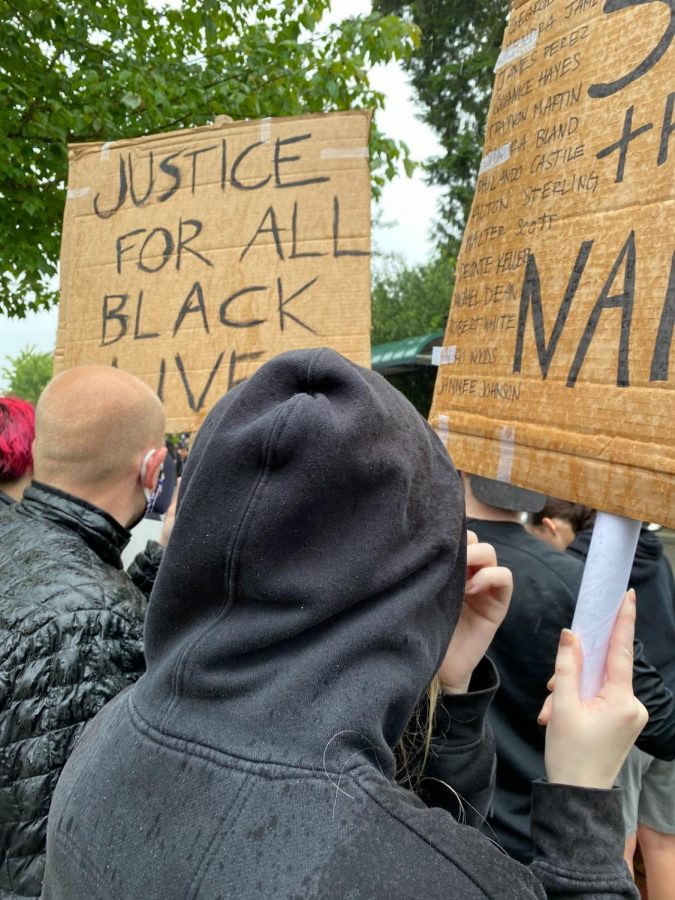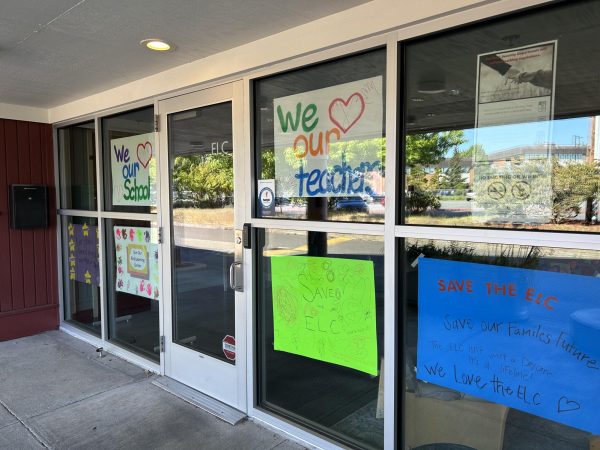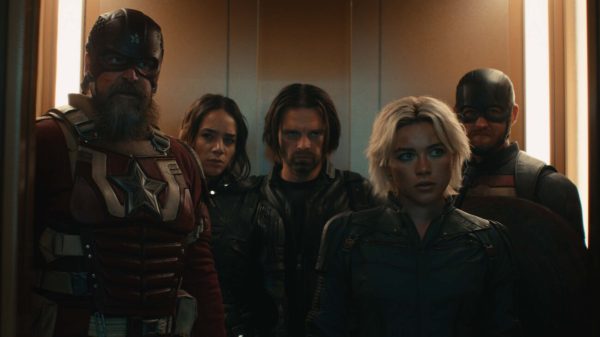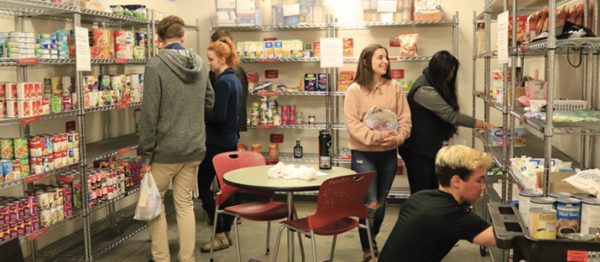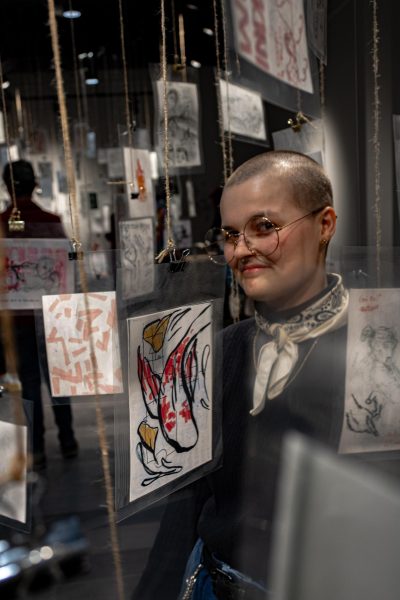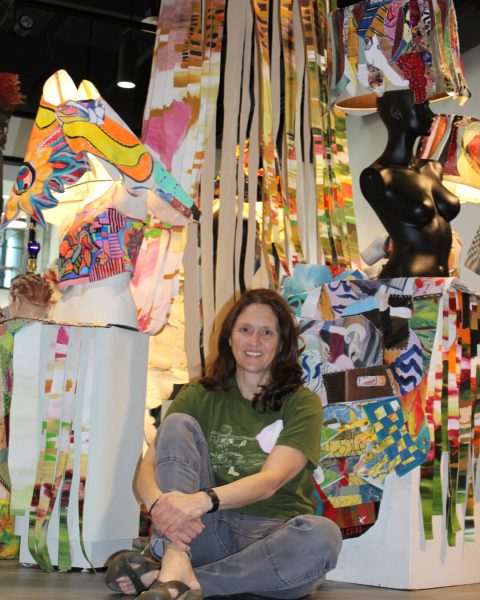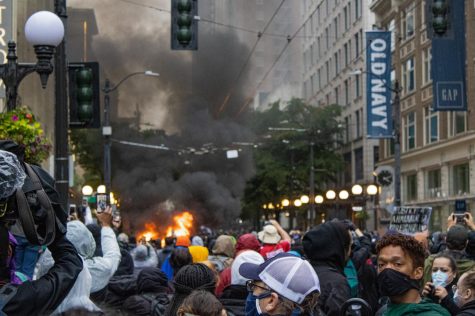Black Lives Matter: A Call to Action for EvCC Students
How EvCC Students Can Take Action in Support of Black Lives
On Jun. 2, protesters in Mill Creek chanted “Black lives matter” while holding signs that said “Justice For All Black Lives” and “Say Their Names”.
Activists are shaking the nation demanding justice for George Floyd, a Black man killed by police in Minneapolis, Minnesota on May 25. Protests in conjunction with the Black Lives Matter movement have spread from big cities to suburbs. Protesters are calling for accountability and change at local and national levels.
“Racism and bigotry have absolutely no place in our college,” Dr. Daria J. Willis, president of EvCC, wrote in an email to students. “We will continue to speak out when there is an injustice in society.”
As a result of COVID-19, the EvCC campus is not open for all students and staff. Despite this, students can find ways to unite and continue to take action that supports the Black community and advocates for social justice long term.
Students have protested in cities including Seattle, Everett, Snohomish and Mill Creek. If students decide to protest, they should wear masks and practice social distancing when possible as per guidelines on the EvCC website. Black Americans are disproportionately affected by COVID-19 according to an NPR analysis.
On the EvCC Take Action webpage, relevant resources are available including a link to involvement with the Black Lives Matter movement. The EvCC Black Lives Matter webpage has educational content including statistics and information on EvCC clubs to join or support financially like the Black Student Union.
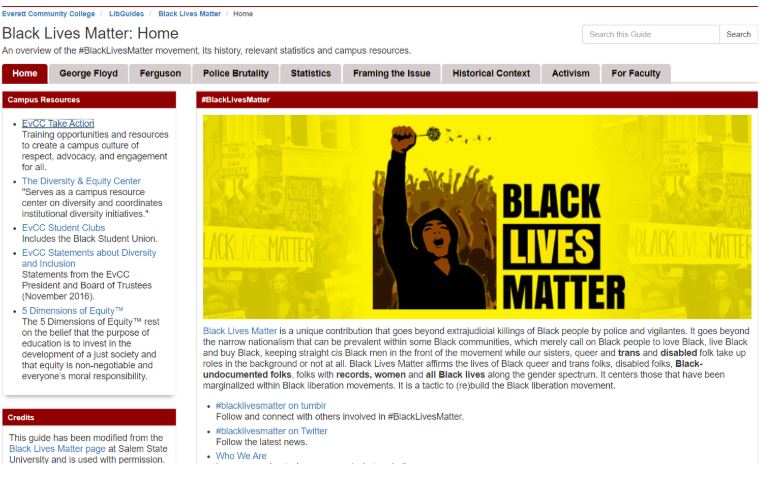
Students being active participants in their anti-racism education eases the burden of Black students and others who may not want to expend themselves teaching in emotionally exhausting or potentially unsafe spaces. Books like “Me and White Supremacy” by Layla F. Saad and “So You Want to Talk About Race” by Ijeoma Oluo are resources offered by Black women who, like other Black activists, have taken on the emotional burden of educating their oppressors.
For white and white-presenting students, understanding privilege and eradicating white supremacy is a life-long commitment. Listening to Black voices and financially supporting Black activists and organizations is a continuous action. Having conversations and using social platforms to share truth and make progress is a permanent responsibility.
Activists around the country are calling for the police to be defunded and dismantled. Understanding this concept and the history behind it is imperative in contributing to the solution. Each community has a unique relationship with the police, and students recognizing theirs can help them in social justice efforts.
Dr. Janice Greene, president of NAACP Snohomish County, wrote in a published letter: “The Snohomish County Sheriff Department made no statement [against George Floyd’s death]. The lack of broad acknowledgment is unfortunate because Snohomish County is not immune and has its troubled relationship with the African American community.”
Students can join or financially support the NAACP and other organizations which fight disproportionate use of force and incarceration rates. Some resources for learning about systemic racism within the U.S. criminal justice system are the books “Slavery by Another Name” by Douglas A. Blackmon and “The New Jim Crow” by Michelle Alexander. Students with Netflix can watch the documentary “13th” directed by Ava DuVernay.
June is Pride Month, so it is especially relevant to shed light on the fight for Black LGBTQ+ rights. The majority of murdered transgender or gender non-conforming people in 2019 were Black according to The Human Rights Campaign. Students can get involved with the Campaign and join or create LGBTQ+ clubs at EvCC.
As a student, know what EvCC fights for. Listen. Lift the voices of those who have been silenced by systematic oppression and work at dismantling that system. Educate yourselves. Demand change now but understand that this is a life-long commitment. Remember Desmond Tutu’s words: “If you are neutral in situations of injustice, you have chosen the side of the oppressor.”

What interests you about journalism?
I think true journalism seems to be one of the only things keeping our society functioning and moving in a positive...

